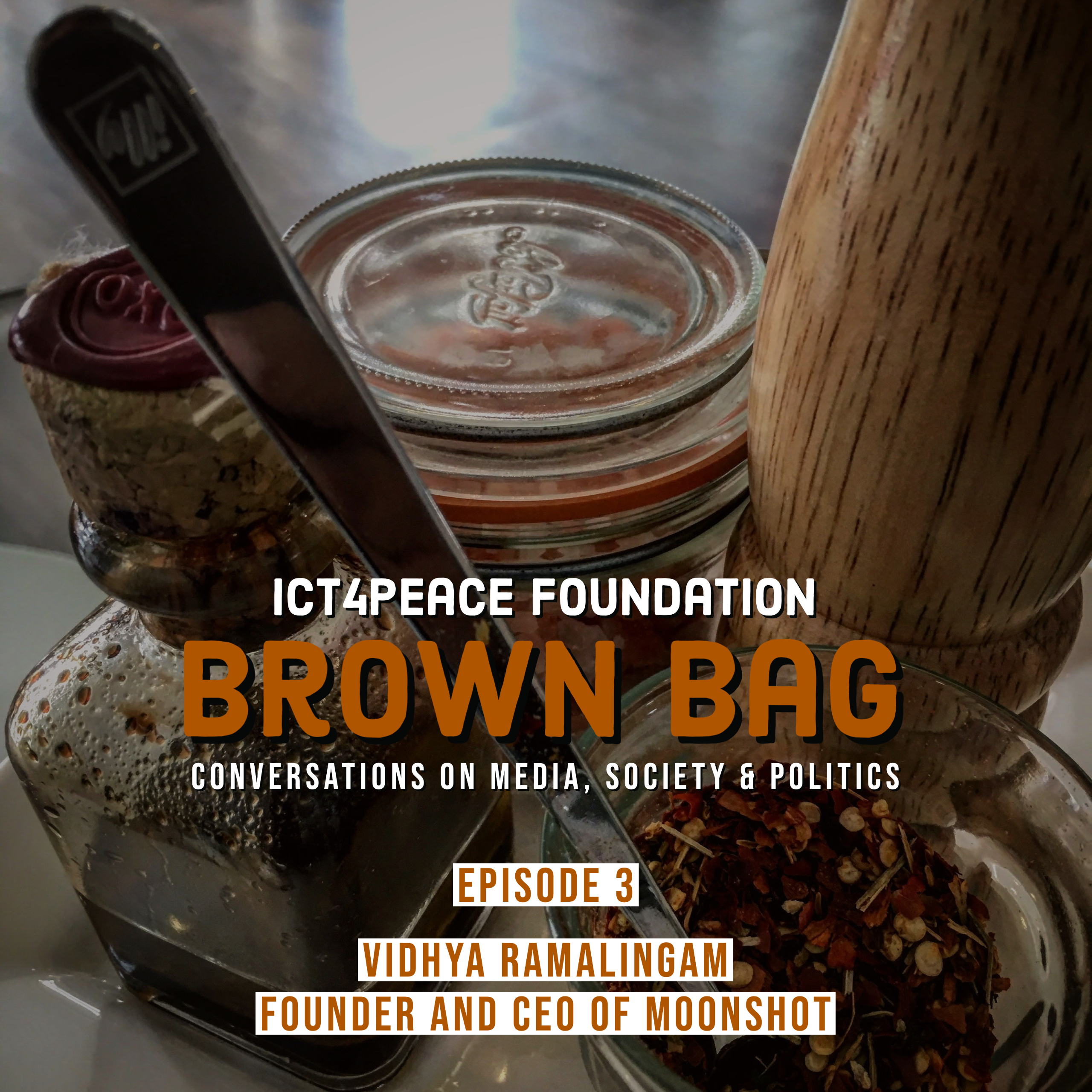ICT4Peace is delighted to release Episode 3 of Brown Bag, the ICT4Peace podcast series on social media, politics, democracy and society from a Global South perspective, hosted and produced by ICT4Peace Foundation’s Special Advisor, Dr Sanjana Hattotuwa.
In Episode 3, Hattotuwa speaks with Vidhya Ramalingam, Founder and CEO of Moonshot. Listen to the podcast on SoundCloud, or use the embedded player below, which also lists previous episodes. Brown Bag is also on Spotify, Google Podcasts, Amazon Music and Apple Podcasts. This production of this podcast series is supported by the Daniel Gablinger Foundation.
In this episode, Ramalingam talks about how as daughter of Indian immigrants, the country, community, and context she grew up – which was largely white America – shaped her worldview, and subsequently, research interests into the roots, and complex foundations white supremacism. Ramalingam talked about how today’s radicalisation pathways, enabled through social media, are entwined with structural racism, which is a decades-old problem.
The conversation then pivoted to disinformation after the pandemic, and how this was different to what was present even leading up to, and after the 2016 presidential election in the US, and across the Atlantic, the Brexit referendum in the UK. Ramalingam talked about how mainstreamed the white-supremacist ‘Great Replacement’ conspiracism had become in the US, and what it was contributing to, and leading towards.
Moving away from a national-security based approach to disinformation’s harms, which is often linked to stochastic terrorism, the conversation moved to how information disorders significantly impact human security, which is a less studied aspect. Ramalingam goes into some depth around how strategic communications, including but not limited social media productions aimed at preventing radicalisation amongst those most vulnerable to disinformation’s core appeal. This is twinned with the work of her organisation, and in multiple contexts around the world.
The conversation then moved on to the impact the decentralised web would have on oversight, moderation, response and redress around disinformation’s spread, and the irrigation of harms that would be far more diverse than studied today. Ramalingam goes to speak about the imbrication of toxic masculinities, and misogyny in the foundations of contemporary disinformation designs, globally, asymmetrically impacting women especially in public roles or elected office.
The podcast ends with reflections on how what Ramalingam does professionally, she’s also used with family members in helping them better understand the harms of mis-, and disinformation.

